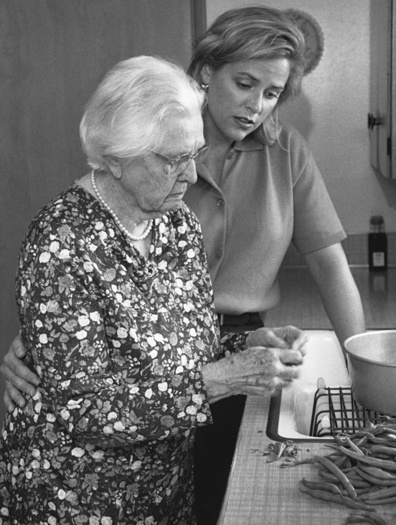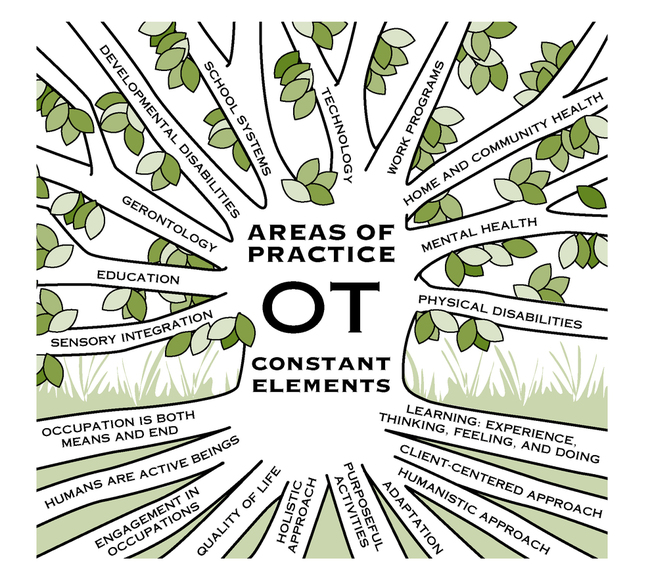After reading this chapter, the reader will be able to do the following: • Understand the importance of a profession’s philosophical base • Describe the general components of a philosophy • Describe the philosophy of occupational therapy (OT) • Articulate occupational therapy’s view of humankind • Explain the meaning of occupation in the context of the profession and understand its role in occupational performance and well-being • Name the values of the profession • Describe adaptation as used in occupational therapy • Distinguish between occupation as a means and occupation as an end • Describe the client-centered approach and its relevance to occupational therapy Students in occupational therapy (OT) or occupational therapy assistant (OTA) programs will better understand the profession when they are familiar with its philosophical base. A professional philosophy refers to the set of values, beliefs, truths, and principles that guide the practitioner’s actions. As such, the OT philosophy defines the nature of the profession, guides the actions of practitioners, and supports the profession’s domains. Theories, models of practice, frames of reference, and intervention approaches that guide OT practice are derived from the profession’s philosophy. Philosophy refers to a set of basic principles or concepts underlying somebody’s practice or conduct.20 Philosophy of a profession can be divided into three areas of concern—metaphysical, epistemology, and axiology—which seek to address questions concerning the values and beliefs of the profession.16 Metaphysical refers to questions concerned with the nature of humankind. Epistemology is related to the “nature, origin, and limits of human knowledge”16 and investigates questions such as “How do we know things?” and “How do we know that we know? Axiology is concerned with the study of values. Therefore, this area explores questions of desirability and questions of ethics (e.g., “What are the standards and rules of right conduct?”).16 Using these questions as guidelines and the core concepts of occupational therapy as guidelines, the philosophical base of the occupational therapy profession can be examined. The philosophical base of occupational therapy was adopted in 1979 and reaffirmed in 2004 (Box 3-1). Examining occupational therapy in terms of the metaphysical, epistemology, and axiology components provides a framework to understand the philosophical base of occupational therapy (Figure 3-1). The core concepts of occupational therapy operationalize the philosophy of the profession (Box 3-2). The U.S. health care system uses a reductionistic approach, wherein humankind is reduced to separately functioning body parts. Professionals specialize in specific areas and treat these body functions independently for greater expediency and efficiency; their purpose is to isolate, define, and treat body functions and to focus on a specific problem. The reductionistic approach has been successful in producing cures and technological developments. However, clients remain frustrated with health care systems that are inefficient and costly. Therefore, many medical practitioners are returning to approaches that allow them to address all of the bodily functions of the client (i.e., the family practitioner approach). Since its beginning, occupational therapy has adhered to a holistic approach. The holistic perspective can be traced to Adolf Meyer. In The Philosophy of Occupation Therapy, he states, “Our body is not merely so many pounds of flesh and bone figuring as a machine, with an abstract mind or soul added to it. [Rather, it is a live organism acting] in harmony with its own nature and the nature about it.”10 The holistic approach emphasizes the organic and functional relationship between the parts and the whole being. This approach maintains that a person is a whole—an interaction of biological, psychological, sociocultural, and spiritual elements. If any element (or subsystem) is negatively affected, a disruption or disturbance will be reflected throughout the whole. Belief in a holistic approach is a core concept of the OT profession. This means that evaluations and intervention plans should reflect the needs of the whole person. OT practitioners treating only the body (or parts of the body) or only the mind, are not following the commitment to holism.2,10,12 In such cases, the consumer is denied one of the unique aspects of occupational therapy: the holistic approach. Occupational therapy views humans as active beings. Humans are actively involved in controlling and determining their own behavior and are capable of changing behavior as desired.12 Furthermore, humans are viewed as open systems in which there is continuous interaction between the person and the environment. The person’s behaviors influence the physical and social environment; in turn, the person is affected by changes in the environment. Occupation refers to “the ordinary and familiar things that people do every day.”1 It is the term used to “capture the breadth and meaning of ‘everyday life activity.’”1 Each person performs certain occupations (e.g., feeding, dressing, bathing, social participation, work, education, leisure). Occupations also fulfill each individual’s need for security, belonging, physiological esteem, and self-actualization.13 Occupational therapy practitioners believe that engagement and participation in occupations are essential to one’s identity and well-being.
Philosophical Principles and Values in Occupational Therapy

Understanding Philosophy
Philosophical Base of Occupational Therapy
What Is Humankind?
Occupational Therapy Views Humans Holistically
Occupational Therapy Views Humans as Active Beings for Whom Occupation Is Critical to Well-Being
![]()
Stay updated, free articles. Join our Telegram channel

Full access? Get Clinical Tree


Philosophical Principles and Values in Occupational Therapy
Get Clinical Tree app for offline access

